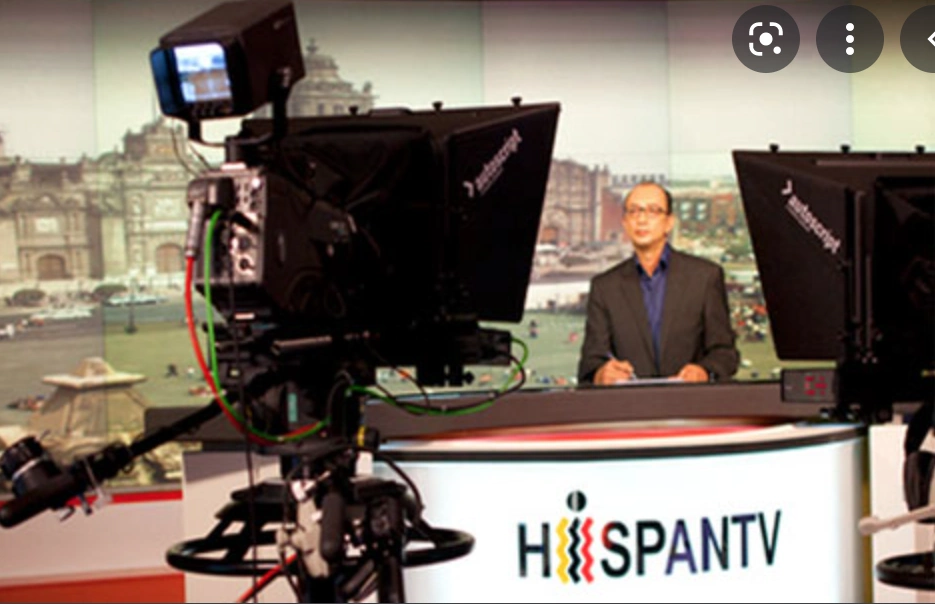HispanTV, the first Iranian media outlet in Spanish is ten years old. This has been an achievement, as it has been singled out for breaching YouTube, Facebook, and Twitter regulations, and its accounts on these platforms have been closed more than three times since 2018. According to the Tehran government, this is due to the American capitalist monopoly that seeks to censor and end the freedom of expression of independent media. While for the United States, the Iranian network is a tool for propagandistic and disinformative dissemination against its government and allies around the world. Despite this, Iran has managed to adapt, developing strategies to be present on the network, thus maintaining a loyal audience in the region.
The founding of this media has been aimed at accompanying Iran’s foreign policy, which seeks to broaden the knowledge of its culture and political actions among foreign audiences, in order to counteract the narratives about Iran in the conventional Western media. Usually, the creation of these media agencies aligned with the political objectives of States is referred to as soft power or cultural diplomacy, as they serve to project the country positively abroad.
However, media created by non-democratic States are analyzed under the concept of sharp power, because the content they produce is considered to be propagandistic and seeks to misinform through bots and cyborgs – automated and other paid accounts – to disseminate a particular narrative in the virtual debate.
Propaganda, Disinformation, and Adaptation
According to The Institute for National Strategic Studies (INSS), from the United States, HispanTV’s political-religious editorial line is characterized by strongly criticizing the United States and Israel, while the Bolivarian and Iranian revolutions are highlighted with relevance since neither of the two coincides politically with the American power. In addition, the Center for a Secure Society identified that HispanTV spreads Iranian values and traditions by showing the “kindness and sympathy of Muslims”.
In addition, according to the study by the U.S. organization, the medium produces positive content about the governments of its allied countries such as Bolivia, Cuba, Nicaragua, and Venezuela.
According to the U.S. organization DFRLab, due to a Facebook operation, 131 accounts, 23 pages, four groups, and 14 Instagram accounts were deleted in 2019 as they were part of an Iranian disinformation operation focused on Argentina, Ecuador, Bolivia, Brazil, Mexico, Peru, and Venezuela. It spread negative messages about the United States, Saudi Arabia, and Israel and disseminated content about social unrest and migration problems in Latin America.
Likewise, at the end of 2020, when Mohsen Fakhrizadeh, leader of the Iranian nuclear program, was assassinated, anomalous dissemination of this content was identified on Twitter in the region, since the accounts that support HispanTV are characterized by not having a significant number of followers. However, this information quickly reached different types of audiences, according to the work of the INSS.
In spite of the accusations, the Iranian media’s adaptation strategy to continue on the network is striking, especially on YouTube where politicians or journalists with certain recognition are used to ensure the audience and, therefore, the success of their content. Fort Apache and Detrás de la verdad have been their most successful programs, with the participation of the Spanish politician Pablo Iglesias Turrión, the former vice-president of Spain, and the Mexican journalist Roberto de la Madrid.
The second component consists of hosting content on channels other than HispanTV’s main channel, now known as Nexo Latino. With this, they are able to mitigate the loss of information, which has happened before due to the closure of their network accounts. Iran has even developed its own version of YouTube called Urmedium, where Western censorship is non-existent.
Journalism or news bias?
In short, the journalistic content of HispanTV is certainly controversial. For some specialists, it is nothing more than a media company working for the government to disseminate Iranian propaganda with anti-Semitic information and against “Yankee imperialism”. Therefore, the elimination of its content is nothing more than a natural consequence of its actions.
However, for its followers in social networks, it is one of the few bastions of journalism that still exist on the web, as it dares to question the hegemonic narratives and therefore is constantly under the eye of the hurricane.
Beyond interpretations, HispanTV has managed to make inroads into the Latin American audience through two major topics, Iranian culture and international political affairs, presented under the slogan: objective and truthful content. However, this is a double-edged sword for any media, whether State-owned or private, as they obey a specific editorial line and HispanTV is no exception.
Its political tradition will inevitably affect the presentation of its contents, which will permanently seek to favor the Iranian government and its allies. An example of this was the resignation of journalist Roberto de la Madrid, when he found irreconcilable differences with the perspective required to deal with the downing of Ukrainian commercial flight 752 by the Iranian army in 2020.
Translated from Spanish by Janaína Ruviaro da Silva











